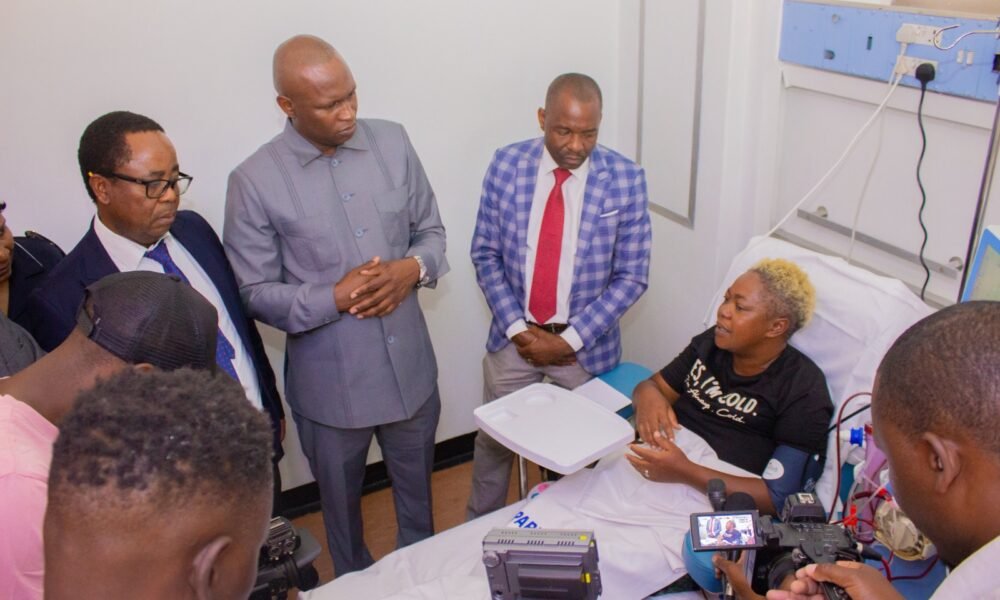Zimbabwe News Update
In 2023, mercy mutinhiri was told by doctors that she needed to start renal dialysis immediately after suffering from kidney complications. Residing in chitungwiza, the only nearest health care facility she could go to for dialysis sessions was parirenyatwa hospital that offers free services in line with a government policy. However from that year, three times a week she would wake up at 1am to go and que for machine slots at the hospital due to high demand surpassing available renal units. However that is no longer the case now. Her burden has been lowered down- thanks to a donation of fully fledged renal units by national aids council. In total, nac donated 21 machines for dialysis and a complete family blood bank.
Kidney patients have a chronic condition where the kidneys are not functioning properly, which can range from mild to severe, potentially leading to kidney failure. Common causes include high blood pressure and diabetes, but other factors like infections, high cholesterol, and certain medications can also contribute. Management focuses on slowing progression through lifestyle changes, controlling underlying conditions like blood pressure and sugar, and taking prescribed medications. For advanced kidney disease, treatments like dialysis or a kidney transplant may be necessary. For mutinhiri, the increase of dialysis machines has meant that she can now arrive at the hospital at 8am and still get a hour session without hussles. “if you look at my face now, it is glowing.
It used to be sombre looking and representing the challenges i would go through first before getting onto a dialysis machine,” she chronicled. Tafara gava, another kidney patient said a single dialysis session can last up to five hours. “before the government made it a free service, we spent between $25 and $80 at government hospitals for a single dialysis session. Patients at private hospitals, which are not affected by the new policy, pay between $200 and $300 per treatment. However at pari there were few machines which made us spend all night queing to be served. The nac donation has therefore come as a life saver,” he said.
Dr bernad madzima, the nac ceo said in as much as national aids council supports ministry of health and child care in the provision of health commodities mainly arvs, laboratory equipment and reagents, parirenyatwa hospital has had a special relationship with nac. “we have gone beyond the usual support we have given to the health ministry,” he said. The areas of support in the last two years conducted by nac at pari include cancer medicines worth usd500 000.00; hermatology reagents worth usd300 000.Oo per year; theatre beds worth usd500 000.00 and laboratory reagents worth usd800 000.00. “we believe these two projects will go a long way in ensuring that patients get quality and effective health services. National aids council support has now extended to non communicable diseases.
This is in line with integration of health services as envisioned by the ministry,” said dr madzima.
